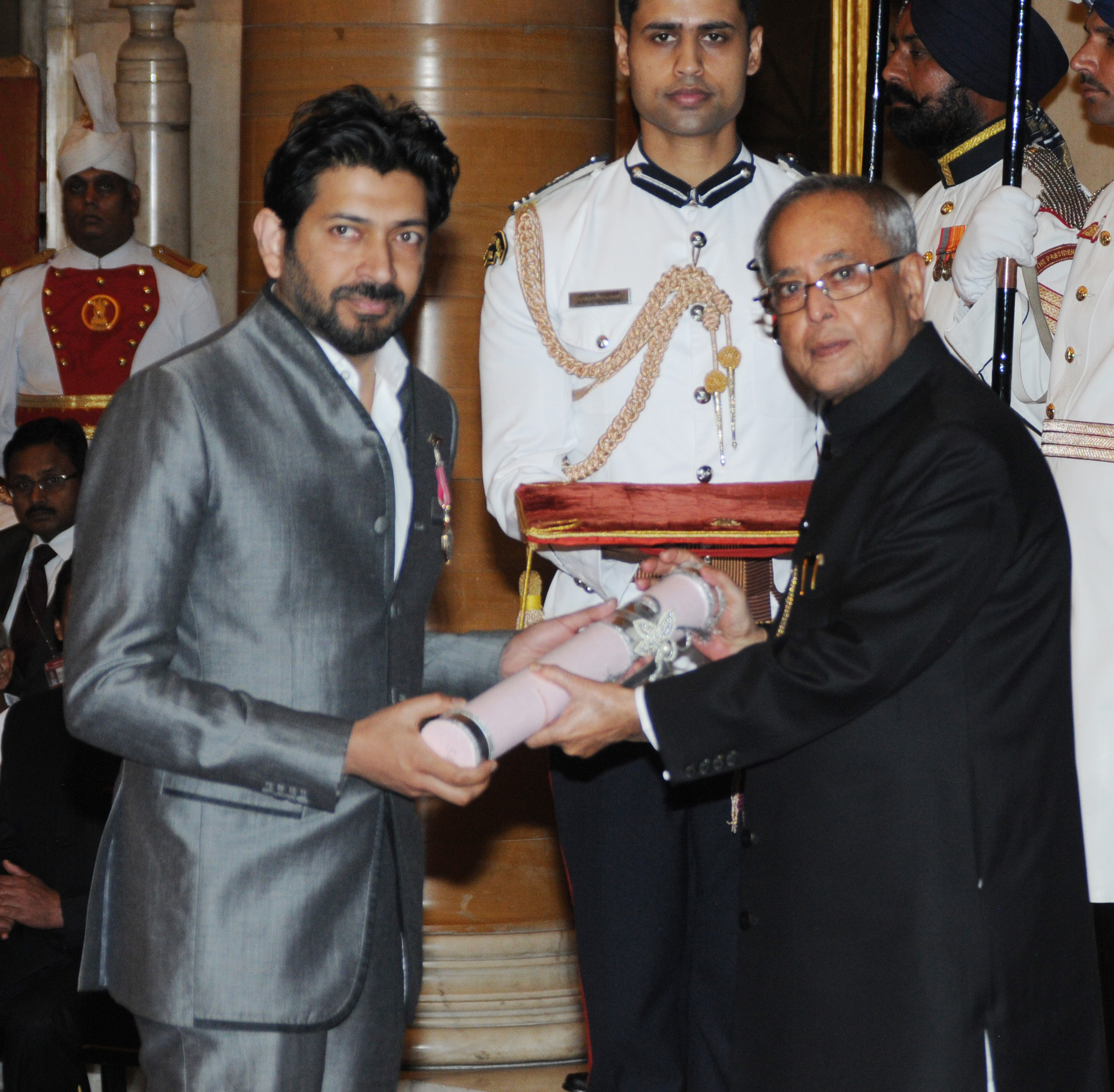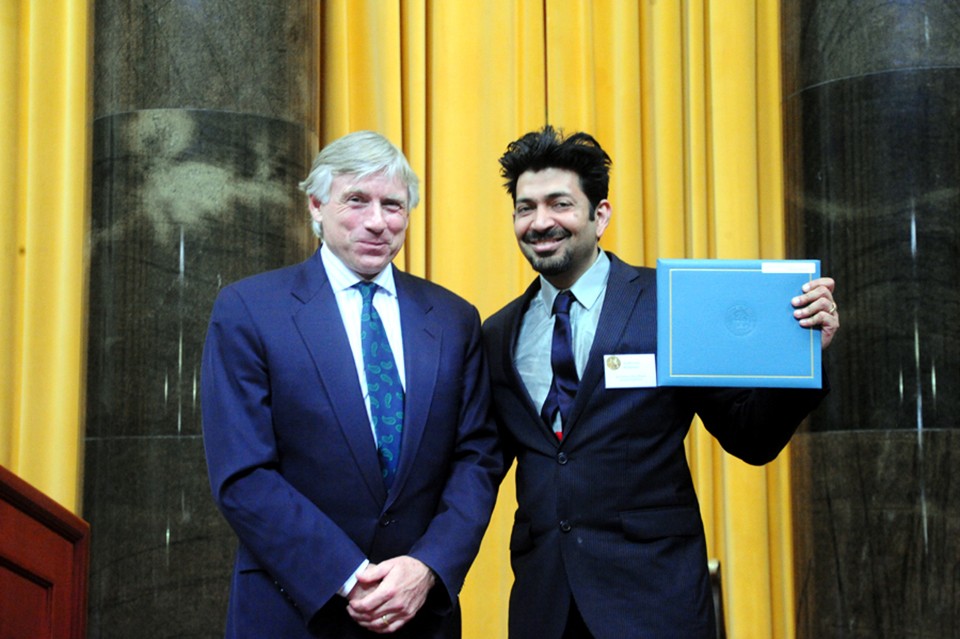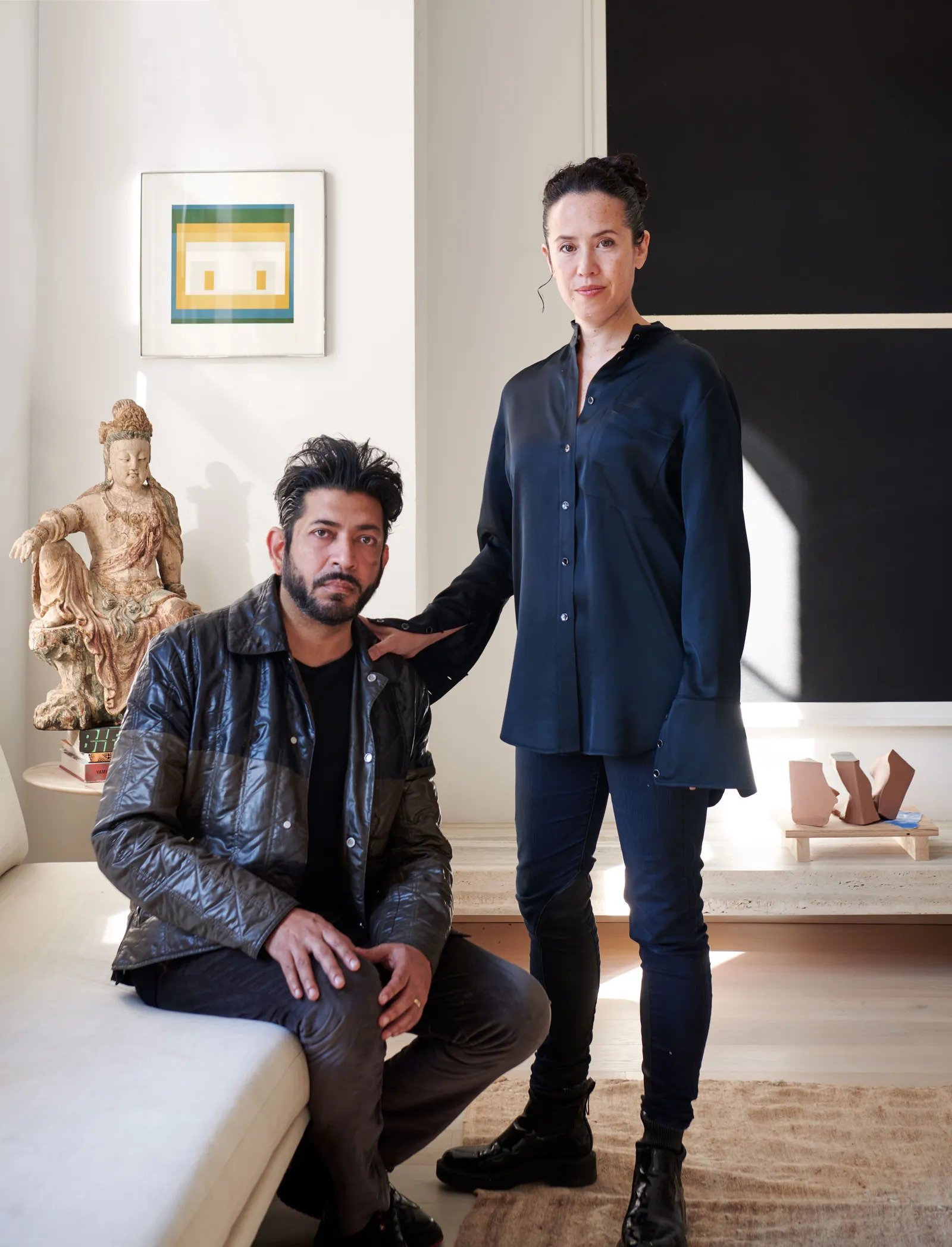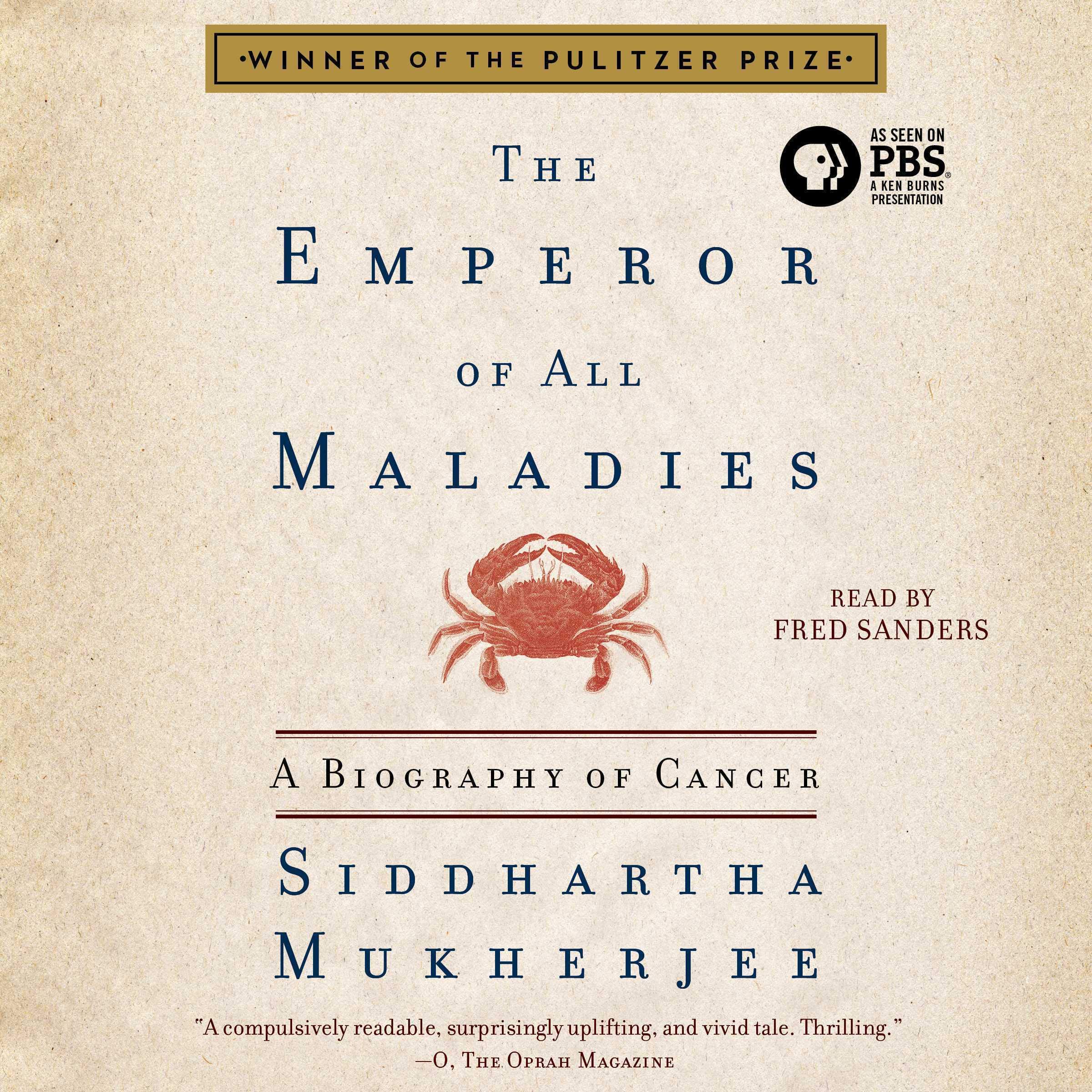(June 17, 2022) “An elegant inquiry, at once clinical and personal, into the long history of an insidious disease that, despite treatment breakthroughs, still bedevils medical science,” the Pulitzer Prize committee had noted while awarding the 2011 award to cancer specialist Dr. Siddhartha Mukherjee. An Indian-American oncologist, cell biologist, and hematologist, Dr. Mukherjee created waves in the medical world after he released his first book The Emperor of Maladies: A Biography of Cancer, which weaves together his experiences as a cancer expert.

Dr. Pranab Mukherjee presenting the Padma Shri Award to Dr. Siddhartha Mukharjee
Honoured with India’s fourth highest civilian award, the Padma Shri, the Global Indian‘s research concerns the physiology of cancer cells, immunological therapy for blood cancers, and the discovery of bone and cartilage-forming stem cells in the vertebrate skeleton. And now, the 52-year-old oncologist is back in the news with yet another brilliant book, The Song of the Cell: An Exploration of Medicine and the New Human, in which Dr. Mukherjee explores if a human could be rebuilt the same way as the paradoxical ship of Theseus – with healthy replacements for aging or malfunctioning cells.

Lee C. Bollinger presenting Pulitzer Prize to Dr. Siddhartha Mukherjee
“To understand or build an organism, you ultimately need to understand the communications between individual parts of the organism. We are beginning to understand the parts but not the sum of the parts — the communications that go between organisms, or what I would call cellular ecology. The example that comes to mind is the famous conundrum of cancer metastases. Why aren’t their metastases in the spleen? The liver is a frequent site of metastasis — why? Is it the anatomy? Is it the ecology of the cells around it? I’ll give you one more example. Why are there such frequent metastases in what’s called the axial skeleton, the central skeleton, but very few in the distal skeleton in your fingers or the other bones in your body? The answer, or answers, have to do with understanding, not just anatomy but how cells communicate with each other; in this case, how cancer cells build homes around each other. That’s one of the mysteries that we need to understand. And that’s why the book is called The Song of the Cell,” the oncologist, who is currently working as an assistant professor at Columbia University in New York, explained during an interview.
A brilliant start
The oncologist, who started his journey from the lanes of New Delhi, was always a brilliant kid. Always passionate about pursuing a career in medical sciences, Dr. Mukherjee attended St. Columba’s School in Delhi, where he won the school’s highest award, the ‘Sword of Honour’, in 1989. Soon after finishing his secondary school education, the oncologist moved to the United States of America to pursue a degree in biology at Stanford University. A place that turned out to be gamechanger for him. During his undergraduate programme, Dr. Mukherjee got a once-in-a-lifetime opportunity to work under Nobel Laureate Paul Berg at his laboratory along with other students. The team worked on defining cellular genes that change the behaviour of cancer cells. His brilliance in the field and contribution to the subject earned him a membership in Phi Beta Kappa – the oldest academic honor society in the United States – in 1992, one year before he received his B.Sc degree from the University.
A Rhodes scholar, Dr. Mukherjee moved to the United Kingdom, where he pursued doctoral research at Magdalen College, University of Oxford, and worked on the mechanism of activation of the immune system by viral antigens. But his quest for knowledge wasn’t over as yet.
His research in the field of the immune system made him more curious about the one disease that humans have been fighting for centuries, without any cure – cancer. He returned to the US and joined Harvard Medical School, where he earned his Doctor of Medicine (M.D.) degree in 2000. Before specialising in oncology at the Dana-Farber Cancer Institute (under Harvard Medical School) in Boston, he also worked as a resident in internal medicine at the Massachusetts General Hospital from 2000 to 2003.
Researching the essence of life
After a decade of dealing with cancer patients and their sufferings, the oncologist decided to pen down all his experiences to share with the world. And thus, was born The Emperor of All Maladies: A Biography of Cancer, which won him the prestigious Pulitzer Prize for General Non-Fiction in 2011. The book tries to answer the question by going back to the very origin of the disease and showing its development through history. “The book is written entirely for a layperson to understand, but I wanted to treat this audience with the utmost seriousness. If you look at Amazon, you find 5000 books about cancer…but I felt as if there was a vacuum and that none of these books addressed the kinds of questions that patients and families have, which is a desire to have a larger history, one that goes back to the origins and then takes us into the future,” the oncologist had said during a press interaction.
“The book was written keeping in mind not only patients, not only families but also the most general reader who wants to know how this disease came about and what its future might be. It was written with the scientist in mind. It was written with the student in mind. It was written with the reader of literature in mind…Cancer has played such a large role in every aspect of our society,” he added.
Dr. Mukherjee’s research about the roles of cells in cancer therapy has helped several medical practitioners across the globe help ailing patients. In his latest book, The Song of the Cell, the oncologist talks about the emerging field of cell therapy and about how cellular science could one day lead to breakthroughs in the treatment of cancer, HIV, Type 1 diabetes, and sickle cell anemia.
In fact, the oncologist has a particular interest in T cells — a type of white blood cell and part of the immune system activated to fight disease. He’s been treating patients in India who have certain types of cancer with genetically engineered T-cell variants, and the results have been striking. “One day the cancer’s there. The next day the cancer is virtually gone, eaten up by these T cells,” he says.

Dr. Mukherjee with wife, Sarah Sze
Married to the eminent artist Sarah Sze, Dr. Mukherjee’s life is not just limited to the confines of his classroom and laboratory. The oncologist is quite fond of collecting various art pieces from across the world, and his abode has been featured in various elite lifestyle magazines.
Also Read: Dr Tony Dhillon: The British-Indian doctor leading the pioneering trial of bowel cancer vaccine



